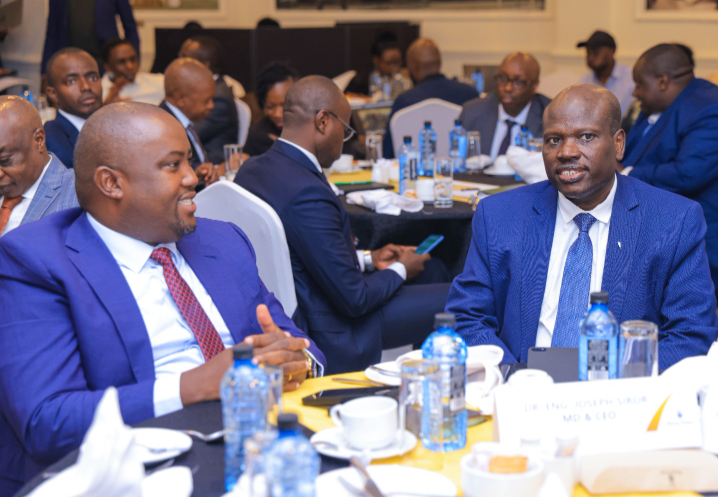The Last Mile Project by Kenya Power and Lighting Company (KPLC), a flagship energy access initiative funded by the World Bank, is facing serious allegations of corruption and exploitation.
Reports indicate that influential figures linked to State House are taking advantage of the project, creating setbacks in its execution and raising concerns over the handling of international funds intended to electrify underserved areas.
Key players allegedly involved include Energy Principal Secretary Alex Wachira, whose appointment followed support from Deputy President Rigathi Gachagua.
Wachira, reportedly acting as Gachagua’s trusted link within the Ministry of Energy, is accused of raising concerns over extensive extortion within Kenya Power’s operations, implicating high-profile associates and contractors.
Sources suggest that Wachira’s loyalty to Gachagua has led to several maneuvers aimed at consolidating influence within key state corporations.
Among them, the appointment of Peter Njenga as Managing Director of KenGen, Kenya’s largest electricity generating company, is attributed to Gachagua’s network of loyalists.
Wachira is one of several of Gachagua’s allies alleged to be raising funds to support his legal challenges, showing how politics may intersect with critical infrastructure projects.
The connections extend to Kenya’s agricultural cooperatives, where Gachagua’s influence reached the Kenya Tea Development Agency (KTDA) elections.
His alleged support for leaders in the tea industry serves to broaden his reach among farmers, a core constituency.
Gachagua-backed figures such as Enos Njeru were reelected within KTDA, with key elections attended by high-ranking officials, including Agriculture CS Andrew Karanja and Tea Board representatives.
Kenya Power’s tendering processes have drawn scrutiny following allegations of a multi-million shilling extortion scheme led by the company’s procurement manager, John Ngeno. Contracts, including those under the Last Mile Project, are alleged to have been awarded at a State House ceremony with President Ruto as a witness.
Soon after signing these contracts, Ngeno allegedly demanded 10 million shillings as a “facilitation fee” from contractors awarded tenders, according to sources close to the case.
The first company targeted was a Chinese contractor whose representative was reportedly detained until the Chinese embassy intervened, at which point the contractor’s local partner paid the demanded sum.
Other contractors allegedly remain under pressure to pay similar fees or risk project delays.Ngeno, along with KPLC’s CEO Joseph Siror, is reportedly at the center of this scheme, allegedly forcing contractors to channel payments through Sidian Bank accounts as guarantees.
These funds, meant as security deposits, are part of a broader arrangement that donors and the Central Bank of Kenya were informed of, yet the exact purpose of the bank guarantees remains under question.
The allegations have sparked an outcry, as stakeholders question how deeply entrenched corruption might be within state-sponsored infrastructure projects.
The list of targeted companies reads like a catalog of international contractors, ranging from Power China Huibei to East India Uduong, involved in the European Investment Bank (EIB) and Agence Française de Développement (AFD) funded Last Mile projects.
With numerous companies facing alleged extortion attempts, the scandal sheds light on the high stakes involved in Kenya’s energy sector and the broader challenges of transparency in its public-private partnership arrangements.
Beyond KPLC, reports also point to the personal conduct of the accused officials, particularly John Ngeno, whose alleged close association with Logan Christi Hammbrick, a non-executive board member at Kenya Power, has been noted by those following the investigation.
Their frequent visits to establishments near State House reportedly form part of a pattern of socializing that blurs the line between professional responsibilities and personal interests.
Contractors are raising alarms about irregularities in these tenders, questioning how procurement processes are influenced at Kenya Power and within the Ministry of Energy.
The integrity of Kenya’s energy projects and the involvement of international financial institutions like the World Bank in supporting these projects remain under scrutiny.
For a country striving to improve its energy access, the allegations against influential figures and their involvement in extortion schemes threaten to undermine Kenya’s progress toward reliable, affordable power.
The future of the Last Mile Project, meant to benefit millions, now hinges on the transparency and accountability of those tasked with its execution.





















Add Comment